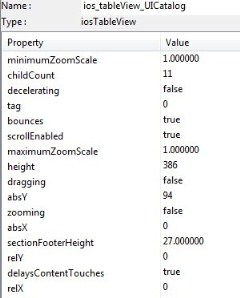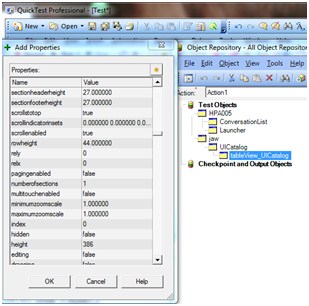M-eux Test for Eclipse
Eclipse is a development environment that has been extended by M-eux with the necessary functionality to create test scripts against mobile applications by recognizing the user interface objects on the mobile device. The benefit of using Eclipse for creating automated test cases is that you have now one platform for development and testing, scripts can run in parallel on different mobile devices and compiled test scripts can be disturbed to external companies which ensures IP protection.
Mobile application testing

M-eux Test installs as a plug-in for Eclipse. The scripts can be created by recording or programming or a mix of both. The user interface objects are stored as java classes. The intelli-sense of Eclipse can be used to create the script.
With the M-eux Test add-in loaded, Eclipse can recognize the user interface elements on the actual device or in the emulator/simulator.
All user interface objects are directly recognized by their attributes. This ensures:
- Recording from the actual device or emulator
- Replay on the actual device or emulator
- Recognition of standard GUI elements on the mobile display
- Recognition of standard HTML elements rendered in the mobile browser.
- GUI learn functionality
- GUI class mapping functionality for customized objects.
- Creation of an Object Pool that can be shared between Eclipse based test cases.
- Parallel execution of test scripts on one PC.
- Bitmap verification
- OCR support for text retrieval from bitmaps.
- extended support for .Net Compact framework applications.
The following figure shows a part of the set of attributes recognized by the tool of the iPhone list user interface object.
Using these attributes, the tool can manipulate and verify all characteristics of the mobile user interface object. No bitmap scraping or pattern matching or OCR techniques are applied ensuring high reliability and re-use of the test scripts.
The tool has proven its value in testing mobile applications handling dynamic data or mobile applications that are localized.
The tool contains also utility functions in order to complete the support for testing mobile applications. For example: incoming phone calls can be intercepted. SMS, e-mail messages can be sent from the background. Also diagnostic functions are available showing for example the memory allocation, the number of processes running on the device and many other functions related to the hardware and software configuration of the device.
M-eux Test for QuickTest Professional (*)
M-eux Test is the only tool that seamlessly extends QuickTest Professional to test mobile applications. The underlying technology of QuickTest Professional is re-used for test automation of mobile applications. By loading the M-eux Test add-in, the QC engineer can use all functionality of QuickTest Professional to test mobile applications including recording, object repository, active screen, exception handling, integration with BPT and QC.

Mobile application testing
With the M-eux Test add-in loaded, QuickTest Professional can recognize the user interface elements on the actual device or in the emulator/simulator.
All user interface objects are directly recognized by their attributes. The add-in applies the same technology for the mobile device that QuickTest Professional applies in the PC world : the access to the user interface object through the API of the operating system. This ensures:
- Full support of all mobile user interface objects in the object repository.
- Recording functionality
- Re-use of the QuickTest Professional expertise like: descriptive programming techniques, exception handling, etc ...
- Full support for QC and BPT integration of QuickTest Professional
- Easy scripting of reliable scripts
- Easy re-use of the script for regression testing, validation testing on new versions of the mobile operating system, validation testing on new models of actual devices.
The following figure shows a part of the set of attributes recognized by the tool of the iPhone list user interface object.
Using these attributes, the tool can manipulate and verify all characteristics of the mobile user interface object. No bitmap scraping or pattern matching or OCR techniques are applied ensuring high reliability and re-use of the test scripts.
The tool has proven its value in testing mobile applications handling dynamic data or mobile applications that are localized.
The tool contains also utility functions in order to complete the support for testing mobile applications. For example: incoming phone calls can be intercepted. SMS, e-mail messages can be sent from the background. Also diagnostic functions are available showing for example the memory allocation, the number of processes running on the device and many other functions related to the hardware and software configuration of the device.
M-eux Test for Visual Studio
Visual Studio is a development environment that has been extended by M-eux with the necessary functionality to create test scripts against mobile applications by recognizing the user interface objects on the mobile device. The benefit of using VS for creating automated test cases is that you have now one platform for development and testing, scripts can run in parallel on different mobile devices and compiled test scripts can be distributed to external companies which ensures IP protection.
Mobile application testing
M-eux Test installs as an add-in for Visual Studio. The scripts can be created by recording or programming or a mix of both. The user interface objects are stored as C# classes. The intelli-sense of Visual Studio can be used to create the script.
With the M-eux Test add-in loaded, Visual Studio can recognize the user interface elements on the actual device or in the emulator/simulator.
All user interface objects are directly recognized by their attributes. This ensures:
- Recording from the actual device or emulator
- Replay on the actual device or emulator
- Recognition of standard GUI elements on the display of the mobile device.
- Recognition of html UI elements in the mobile browser.
- GUI learn functionality
- GUI class mapping functionality for customized objects.
- Creation of an Object Pool that can be shared between test programs.
- Parallel execution of test scripts on one PC.
- Bitmap verification
- OCR support for text retrieval from bitmaps.
- extended support for .Net Compact framework applications.
The Visual Studio scripts can also be uploaded to Quality Center and executed from Quality Center.
The following figure shows a part of the set of attributes recognized by the tool of the iPhone list user interface object.
Using these attributes, the tool can manipulate and verify all characteristics of the mobile user interface object. No bitmap scraping or pattern matching or OCR techniques are applied ensuring high reliability and re-use of the test scripts.
The tool has proven its value in testing mobile applications handling dynamic data or mobile applications that are localized.
The tool contains also utility functions in order to complete the support for testing mobile applications. For example: incoming phone calls can be intercepted. SMS, e-mail messages can be sent from the background. Also diagnostic functions are available showing for example the memory allocation, the number of processes running on the device and many other functions related to the hardware and software configuration of the device.
We support all devices running the following Mobile Operating Systems:
| Device Operating System | System Supported versions |
| Android |
|
| Windows |
|
| Windows Phone |
|
| BlackBerry |
|
| iOS (iPhone, iPad and iTouch) |
|
| Windows Mobile |
|
| Windows CE |
|
